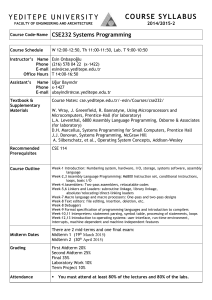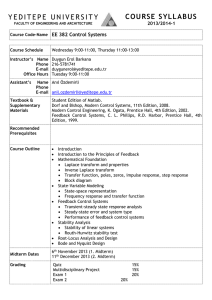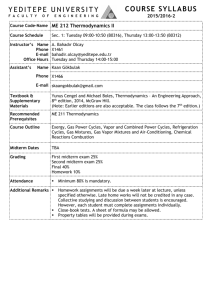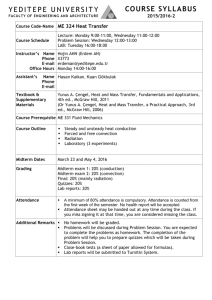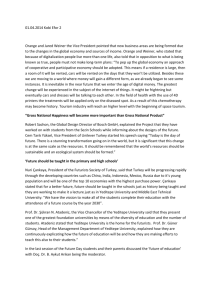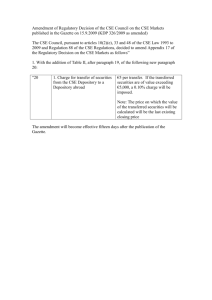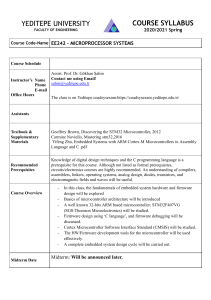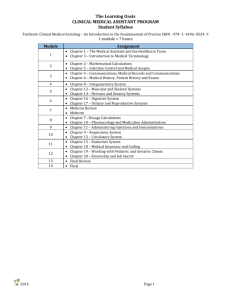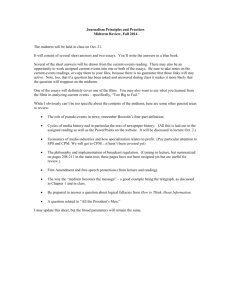Outline
advertisement
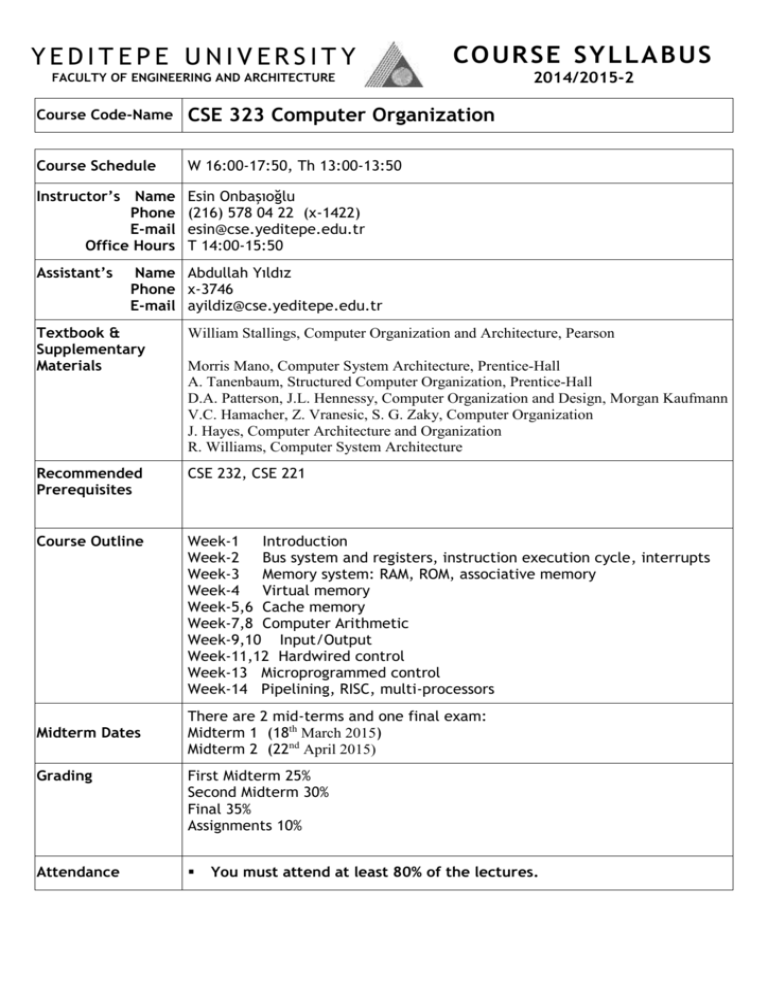
YEDITEPE UNIVERSITY C OUR SE SYLLA BUS FACULTY OF ENGINEERING AND ARCHITECTURE Course Code-Name CSE 323 Computer Organization Course Schedule W 16:00-17:50, Th 13:00-13:50 Instructor’s Name Phone E-mail Office Hours Esin Onbaşıoğlu (216) 578 04 22 (x-1422) esin@cse.yeditepe.edu.tr T 14:00-15:50 Assistant’s 2014/2015-2 Name Abdullah Yıldız Phone x-3746 E-mail ayildiz@cse.yeditepe.edu.tr Textbook & Supplementary Materials William Stallings, Computer Organization and Architecture, Pearson Recommended Prerequisites CSE 232, CSE 221 Course Outline Week-1 Introduction Week-2 Bus system and registers, instruction execution cycle, interrupts Week-3 Memory system: RAM, ROM, associative memory Week-4 Virtual memory Week-5,6 Cache memory Week-7,8 Computer Arithmetic Week-9,10 Input/Output Week-11,12 Hardwired control Week-13 Microprogrammed control Week-14 Pipelining, RISC, multi-processors Midterm Dates Morris Mano, Computer System Architecture, Prentice-Hall A. Tanenbaum, Structured Computer Organization, Prentice-Hall D.A. Patterson, J.L. Hennessy, Computer Organization and Design, Morgan Kaufmann V.C. Hamacher, Z. Vranesic, S. G. Zaky, Computer Organization J. Hayes, Computer Architecture and Organization R. Williams, Computer System Architecture There are 2 mid-terms and one final exam: Midterm 1 (18th March 2015) Midterm 2 (22nd April 2015) Grading First Midterm 25% Second Midterm 30% Final 35% Assignments 10% Attendance You must attend at least 80% of the lectures. YEDITEPE UNIVERSITY C OUR SE SYLLA BUS FACULTY OF ENGINEERING AND ARCHITECTURE 2014/2015-2 Course Code-Name CSE 323 Computer Organization Course Objectives Knowledge in the design of computer hardware i.e. control unit, ALU, main memory, cache memory, virtual memory, I/O units, pipelining; performance of computer systems Additional Remarks Course Outcomes i. Adequate knowledge in mathematics, science and engineering subjects pertaining to the relevant discipline; ability to use theoretical and applied information in these areas to model and solve engineering problems. ii. Ability to identify, formulate, and solve complex engineering problems; ability to select and apply proper analysis and modeling methods for this purpose. iii. Ability to devise, select, and use modern techniques and tools needed for engineering practice; ability to employ information technologies effectively. iv. Ability to work efficiently in intra-disciplinary and multi-disciplinary teams; ability to work individually.
